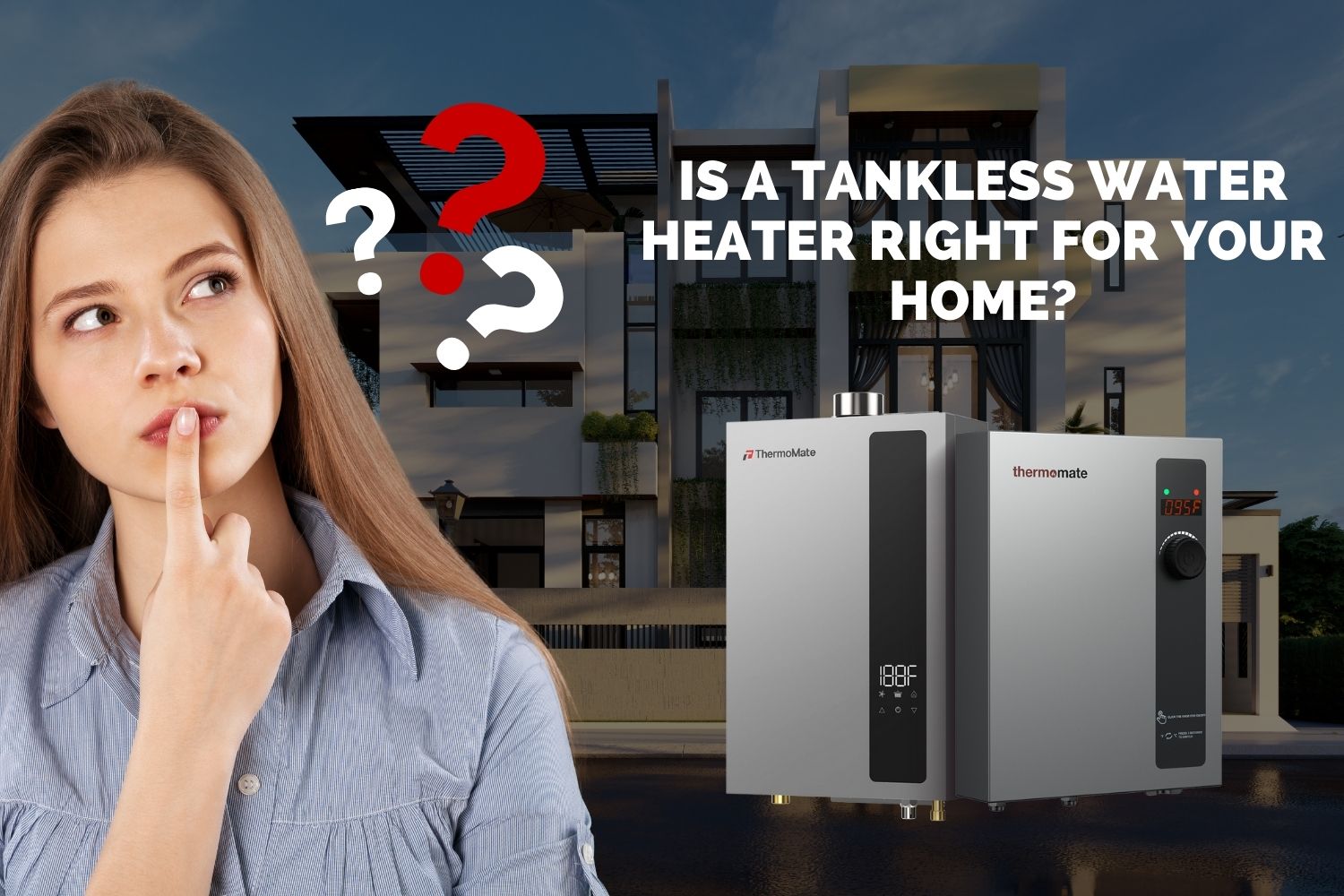Ist ein Durchlauferhitzer das Richtige für Ihr Zuhause? Hier erfahren Sie, wer am meisten profitiert
Bei der Modernisierung moderner Wohngebäude bieten nur wenige Geräte die langfristigen Vorteile eines Durchlauferhitzers . Ob Sie ein neues Haus bauen oder eine veraltete Anlage ersetzen – die Wahl zwischen einem elektrischen oder einem gasbetriebenen Durchlauferhitzer kann Ihre Energieeffizienz, Ihren Wasserverbrauch und Ihren Gesamtkomfort erheblich beeinflussen.
Aber ist ein Durchlauferhitzer die richtige Lösung für Ihr Zuhause? Wir zeigen Ihnen, wer von dieser effizienten und platzsparenden Lösung am meisten profitiert – und welcher Typ für Sie geeignet sein könnte.
Was ist ein Durchlauferhitzer?
Im Gegensatz zu herkömmlichen Warmwasserbereitern, die eine feste Menge Warmwasser speichern, erhitzen Durchlauferhitzer (auch als Bedarfswarmwasserbereiter bekannt) Wasser nur bei Bedarf. Das bedeutet, dass Sie nicht auf das Nachfüllen des Tanks warten müssen und keine Energie für die Warmwasserbereitung verschwendet wird.
Es gibt zwei Haupttypen:
-
Elektrische Durchlauferhitzer – Kompakt, effizient und ideal für kleinere Haushalte oder Installationen am Verbrauchsort.
-
Gas-Durchlauferhitzer – Leistungsstark und besser geeignet für größere Haushalte mit höherem Warmwasserbedarf.
Wer profitiert am meisten von einem Durchlauferhitzer?
1. Hausbesitzer, die Energiekosten sparen möchten
Durchlauferhitzer erhitzen Wasser nur bei Bedarf und vermeiden so den Wärmeverlust im Standby-Modus. Dies kann langfristig zu spürbaren Einsparungen führen – insbesondere für energiebewusste Familien. Elektrische Durchlauferhitzer sind besonders effizient in Regionen mit niedrigeren Strompreisen oder in Häusern mit Solaranlagen.
2. Familien mit hohem Warmwasserbedarf
Wenn Sie mehrere Badezimmer haben, Teenager lange duschen oder Geräte gleichzeitig laufen, kann ein Durchlauferhitzer Ihren Bedarf decken, ohne dass Ihnen das Warmwasser ausgeht. Schluss mit dem hektischen Duschen, bevor der Tank leer ist!
3. Kleine Haushalte oder Wohnungen
Wohnen Sie in einer kleineren Wohnung? Ein kompakter Durchlauferhitzer eignet sich ideal für Badezimmer, Küchen oder Anbauten. Diese Geräte erhitzen das Wasser direkt an der Quelle, minimieren so die Wasserverschwendung und maximieren die Effizienz.
4. Hausbesitzer mit begrenztem Platz
Herkömmliche Warmwasserbereiter benötigen viel Stellfläche. Durchlauferhitzer hingegen werden an der Wand montiert und schaffen so Stauraum oder Nutzfläche – ein großer Vorteil für Eigentumswohnungen, kleine Häuser oder renovierte Keller.
5. Menschen, die nach langfristigen Lösungen suchen
Während die Anschaffungskosten eines Durchlauferhitzers in der Regel höher sind als bei einem Standardmodell mit Tank, ist er aufgrund seiner längeren Lebensdauer (oft 15–20 Jahre) und des geringeren Wartungsaufwands eine kluge Investition für langfristige Hausbesitzer.
Die Wahl zwischen elektrischen und gasbetriebenen Durchlauferhitzern
Hier ist ein kurzer Vergleich, der Ihnen bei Ihrer Entscheidung helfen soll:
| Besonderheit | Elektrischer Durchlauferhitzer | Gas-Durchlauferhitzer |
|---|---|---|
| Am besten für | Kleine bis mittelgroße Haushalte, Verbrauchsstellen | Größere Häuser, Nutzung des gesamten Hauses |
| Installationskosten | Im Allgemeinen niedriger | Typischerweise höher |
| Betriebskosten | Abhängig von den örtlichen Tarifen | Bei hoher Nutzung oft niedriger |
| Wartung | Minimal | Erfordert Belüftung, jährliche Kontrollen |
| Umweltauswirkungen | Sauber in Kombination mit erneuerbaren Energien | Gibt Verbrennungsgase ab |
Abschließende Gedanken
Ein Durchlauferhitzer ist nicht nur Luxus – er ist eine intelligente, energieeffiziente Lösung, die sich ideal für viele Haushalte eignet. Ob Sie einen einzelnen Wasserhahn mit einem Durchlauferhitzer aufrüsten oder ein komplettes Haussystem installieren, die Vorteile liegen auf der Hand: unbegrenztes Warmwasser, niedrigere Nebenkosten und eine geringere Umweltbelastung.
Sind Sie sich noch nicht sicher, welches Modell Ihren Anforderungen entspricht? Berücksichtigen Sie Ihre Haushaltsgröße, Ihren Wasserverbrauch und die verfügbaren Anschlüsse (Strom oder Gas), um die richtige Wahl zu treffen.

